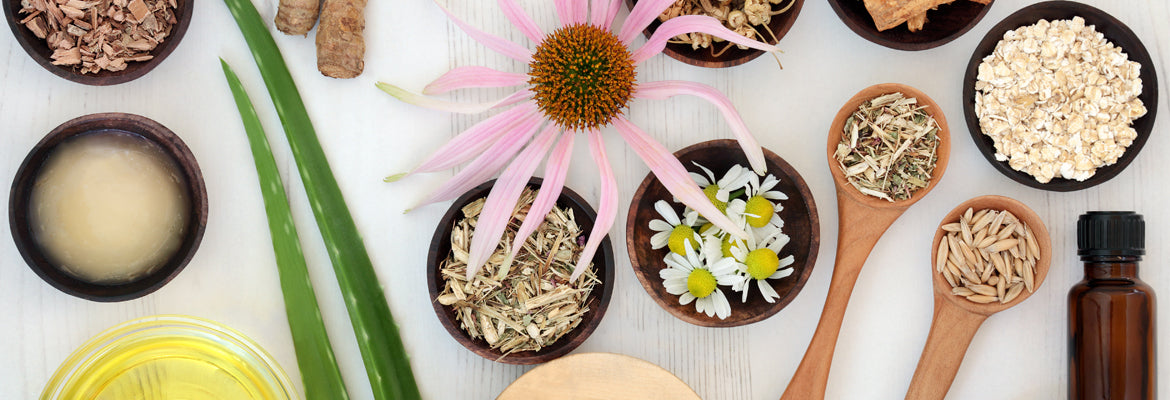Eczema and rosacea are relatively common inflammatory skin conditions that can cause a lot of grief for those who live with them every day. We previously thought that winter was the worst season for someone suffering from either of these skin disorders, but new research has shown that the summer might be the biggest culprit in triggering flare-ups. So as we transition into the warmer months, we’re putting a spotlight on eczema and rosacea and answering some of your most frequently asked questions as to how to manage them.
How can the warm weather make these skin conditions worse?
The sun is definitely a big culprit in exacerbating conditions like rosacea and eczema, so it’s always important to practice good sun care to keep flare-ups at bay. In addition super humid, wet, weather or super dry weather can make matters worse as well. The important thing here is to switch up your skincare to adjust to the conditions, and make certain life-style changes (adding a de-humidifer, or a humidifier depending) to calm skin irritation.
For men, rosacea is usually not so affected by shaving since it normally occurs on the nose and upper cheeks. However eczema is not so discerning and can affect any area of the face. Limiting shaving to immediately after a shower can be helpful as both the hair and skin remain soft. Taking extra time to be careful as you shave can also help prevent irritation and limit eczema flare-ups.
Can certain skincare ingredients/products make eczema and rosacea flare-ups worse? What should people avoid using or doing?
Yes! Fragrance, alcohols, and parabens are the most common culprits, but specific allergens and irritants will vary from person to person, so it’s always a good idea to try and track which ingredients bother your skin and then avoid them. What works for one person may not work for you: for example some people suffering from eczema swear by our Miracle 10 Toner, whereas others report that the Witch Hazel in it causes flare-ups (and it’s a similar story for Tone in our Men’s Collection).
It’s also important to note that you may not need to shy away from モstrongヤ ingredients like AHAs or Retinol. Yes, these products are highly active, however, they have been proven in many individuals to improve skin conditions, not irritate them. If you do suffer from a skin condition, make sure you conduct a patch test and discontinue use if you develop any kind of irritation. Our best advice is to create a flare-up journal to track the situations you find yourself in and products you are using that seem to make your skin condition better or worse.
What ingredients should a rosacea or eczema sufferer try for preventing flare-ups and also for calming them?
Using products that work to correct the pH balance of the skin will help to normalize and regulate the skin, reducing flare ups. Since these are inflammatory skin conditions, look for anti-inflammatory ingredients like Aloe Vera and Chamomile and natural emollients such as Coconut and Grape Seed Oil. Vitamins C, B, E and K can help to protect and fortify the look of the skin. But when you are prone to rosacea and eczema, it’s super important to test particular ingredients to make sure they work for you.
Are all-natural products better for especially sensitive skin?
Not necessarily. There’s substantially less regulatory oversight on モnaturalヤ products than their mainstream counterparts. And just because a product is natural does not mean it’s not irritating to sensitive skin. For example, poison ivy exists in nature, but it’s certainly not good for your skin! The same is true for certain botanicals and extracts.
In addition to that, it’s important to check the ingredients on any skincare product you buy and to stay away from any モhot listヤ ingredients. Labels can be deceptive but all manufacturers are required to disclose their ingredients. Avoid products that contain parabens, perfume, or alcohol and any other known irritants to your skin.
If skin is constantly irritated, when is it time to see a doctor?
If the skin is constantly irritated and you can’t seem to isolate any triggers (because everything seems to irritate the skin), then it’s definitely time to see a doctor.

